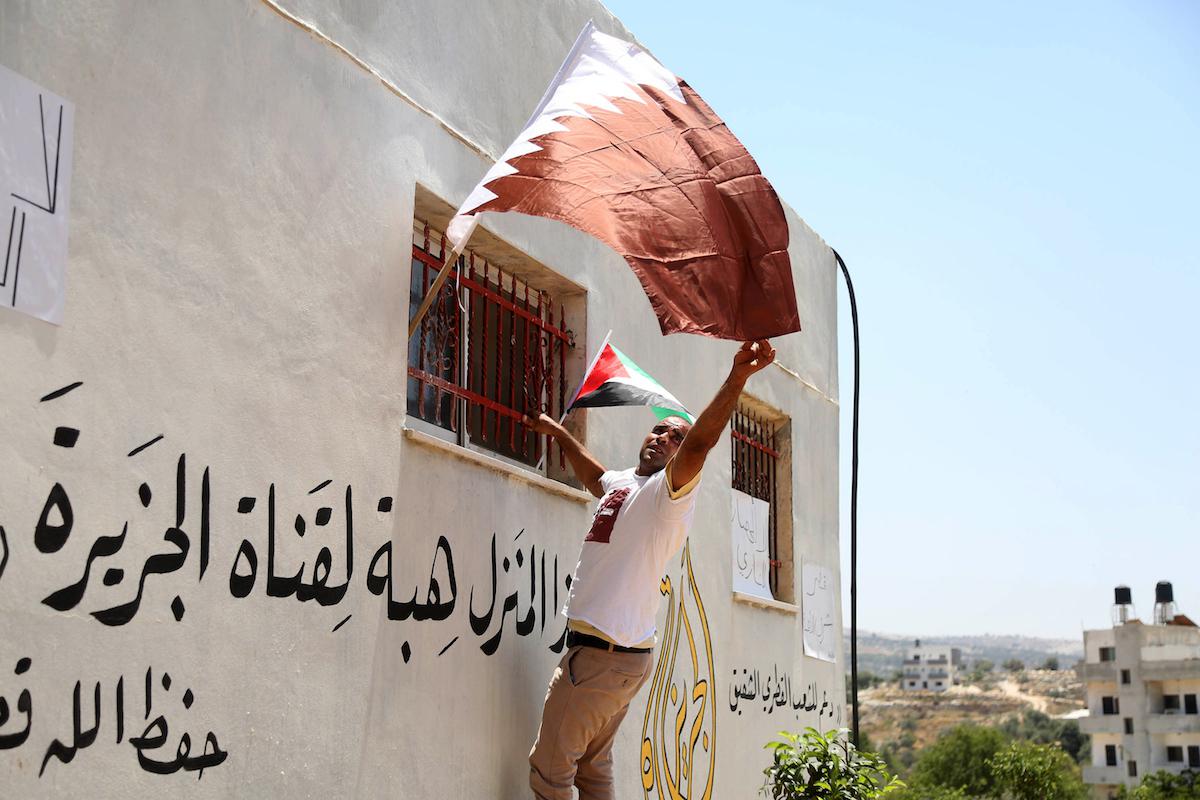There are many lessons that the Palestinians can take from the crisis in the Gulf which has seen four Arab states impose an air, land and sea blockade on the tiny state of Qatar.
The first is to recognise how fickle friendships actually are among supposedly Arab brothers, and how they can lead so easily to treachery and betrayal. The Palestinians should not expect the same leaders to deliver a solution to 70 years of injustice any time soon. If the member states of the Arab League were genuinely interested in bringing peace and prosperity to Palestine, they would have done so decades ago. There has been a lot of hot air and meaningless resolutions, but concrete action? None whatsoever.
To be brutally frank the whole cabal of kings, emirs and despotic rulers have only taken up the Palestinian cause when it suits their own selfish aims and political agendas while instilling a sense of victimhood within the Palestinian people. The oil rich dictators could have used their influential billions to twist the metaphorical arm of the West into reining-in Israel and ending its brutal occupation of Palestinian lands. After all, the Zionist state is propped up by tax dollars and weapons from America and its allies in Europe.
The second lesson for the Palestinians is to lay the groundwork for the future. This means forward planning and strategising decades ahead instead of the current knee-jerk reactions to events as they unfold. Back in the 1990s, Qatar invested more than a billion dollars in constructing Al-Udeid Air Base to the south-west of Doha. The move baffled observers as Qatar's air force was, and still is, relatively modest. However, by 2003, the US military had quit neighbouring Saudi Arabia and moved-in to the state-of-the-art base which today serves as a logistics and command hub for US operations in Afghanistan and Iraq. It is also probably legitimate to observe wryly that the presence of the US military has also safeguarded Qatar from internal coups and invasions.
The third lesson is simple: pick your friends wisely. While maintaining warm relations in the Arab world, Qatar has ploughed its own furrow and chosen to put its trust in those further afield. Like it or not, the US is proving to be a solid ally and, since it has the largest military on the planet including 11,000 troops based at Al Udeid the decision to offer the base to the Americans back in 2003 has been more than justified.
Despite mixed signals from the Trump White House, the US Navy recently embarked on a joint exercise with the Qatari Emiri Navy. With the best will in the world, it is hard to see how the Pentagon would have authorised this if Washington genuinely regarded Qatar as a terrorist-supporting state. That is one of the more ludicrous accusations levelled at it by Saudi Arabia, the UAE, Bahrain and Egypt.
Qatar also invited the Turkish military to set up a base there. Again this was something planned two years ago when the parliament in Ankara approved the deal in June 2015 giving Turkey the right to establish military bases in the emirate and deploy some troops. The base opened last year, and remains a first for Turkey in the Arab World. Moreover, few would really want to test the Turkish army's formidable reputation as a fighting force.
A final lesson for the Palestinians is to understand that consistency in one's principles is vital. Qatar has remained unwavering throughout the blockade and it is clear that the government's response to a long list of demands by the blockading Arab states will be to reject them. Foreign Minister Shaikh Mohammed Bin Abdulrahman Al-Thani delivered his country's official response when he met with the Emir of Kuwait, Shaikh Sabah Al-Ahmad Al-Jaber Al-Sabah, earlier this week. While the Gulf 3+1 gave Doha a 10-day deadline that ended on Sunday, it was then extended by 48 hours. Clearly Saudi, the UAE, Bahrain and Egypt have boxed themselves into a tight corner exposing the very weaknesses in the Arab world which will continue to hinder progress in any direction.
Above all else, from this whole Gulf fiasco the Palestinians should learn to trust no one but themselves if they want peace and justice in a region where very little of either exists. To plan for the future they must invest in a leadership they can trust and rid themselves of the morally bankrupt rabble in Ramallah who are lacking in critical thinking. Their brand of corrupt Arab authoritarianism and collaboration with the Israeli occupation is a cancer at the heart of the Palestinian nation.
Now is the time for the younger Palestinians to strategise and plan for the future, for only they have the intellectual ability to see beyond the colonial geography and history which binds together the impotent and ageing leadership in the West Bank. If nothing else, Qatar's stand should prove that strength comes from unity and is reinforced by allies whose loyalty is guaranteed (even if based on self-interest). Such an unwavering resolve and determination to reach an end goal in the face of bullies who may outnumber you but lack wisdom, stamina and integrity should see Qatar through this difficult period.
The Palestinians don't have the resources and mind-boggling wealth of the Gulf States, but they have right on their side; holding the moral high ground with unity of purpose will serve the masses both within and beyond Occupied Palestine. As they seek to fulfil their legitimate right of return and quest for justice, they also have one thing which few of the bullies in the Gulf possess, and that is courage by the bucket load. If they can learn from the blockade of tiny Qatar and push for genuine unity within their own ranks, the people of Palestine stand to benefit from what is a very dark period indeed.
